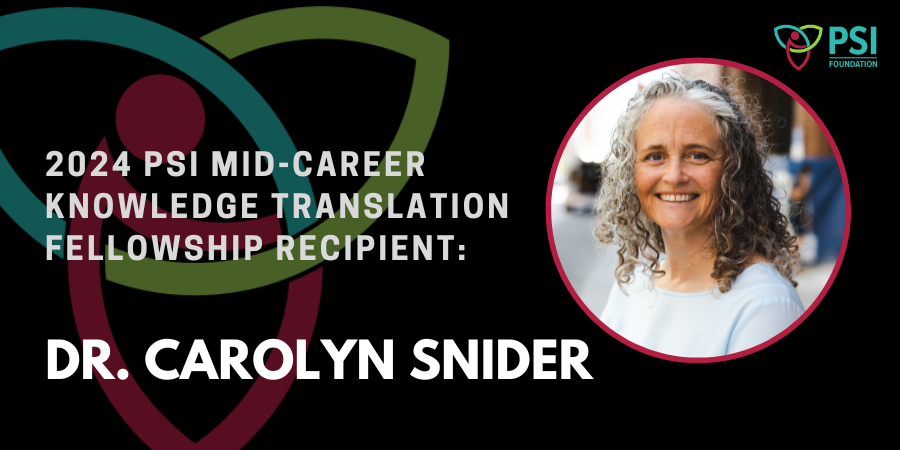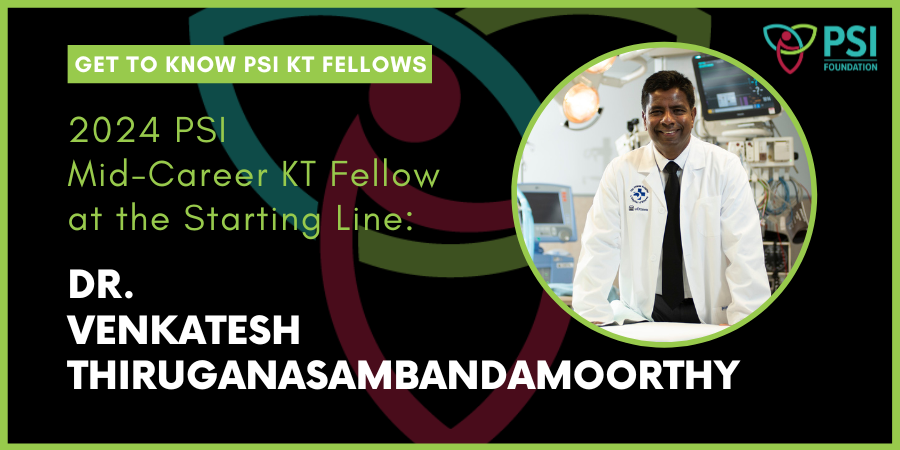Upon receiving their approval letters and sharing the exciting news of the award with their community, the PSI Knowledge Translation (KT) Fellows begin preparing to get settled in their place at the starting line. As they embark on their KT Fellowship journey, we asked them few questions to know them beyond their recipient biographies, as well as some notes they could pass on to future applicants.
Please use 3 words to describe how you feel as you begin your KT Fellowship.
- Empowered
- Resourced
- Valued
Why did you apply for the PSI Mid-Career KT Fellowship? How does this award align with your current research and career goals?
My application for the PSI Mid-Career KT Fellowship was motivated by my commitment to integrating social determinants of health into emergency department practices in Ontario, where I’ve witnessed the dire effects of poverty, homelessness, and other social issues on health outcomes. This fellowship aligns perfectly with my research into developing sustainable outreach programs that position outreach workers as central to effective healthcare delivery. The support from the fellowship is crucial to providing the protected time I need to do this work. Professionally, it propels my career goal of being a transformative leader in emergency medicine, advocating for systemic changes that ensure outreach workers are recognized as indispensable. Through this fellowship, I look forward to being able to secure the evidence and backing needed to advocate for policy changes that integrate and sustain outreach roles in healthcare, ultimately improving patient care and health outcomes across Ontario.
What are 3 to 5 general tips and notes you would pass on to those preparing their KT Fellowship application?
- It is key for Knowledge Translation to involve the right people in the design, implementation and evaluation of your work and ensure that it is translated to the bedside and policy in an effective way. You will learn the most from the patients and people with lived experience. Build your team deliberately and make sure they are compensated for their expertise.
- Get input from all stakeholders on what the most important outcomes for them. Stakeholders include the communities who help design your treatments, interventions all the way to the people who need to sustainably fund them in the long term.
- Get a lot of people to read your application to make sure you are communicating your work effectively. Ask them to reflect back what they think your proposal is. We get so stuck in our work that we sometimes forget to define or explain the most fundamental concepts in a grant or paper. Make it easy for the reviewers.
- Leave time to enjoy the process. Grant proposals should be exciting to write as they essentially help you plan what you get to do in your academic work for the upcoming few years.



